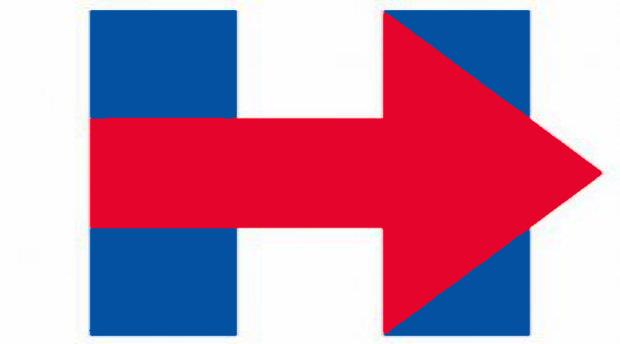Court Decision Could Open Airing Political Ads Options To Cash-Strapped Public Stations
Post Views 1
The U.S. Court of Appeals in San Francisco ruled in April that the federal law, barring public broadcasters from airing political or issue advertising is undemocratic and that they should be allowed to air ads on the air. However, the court ruled that a ban on commercials by for-profit products could stand.
By a 2-1 vote, a panel of the 9th U.S. Circuit Court of Appeals in San Francisco said the Federal Communications Commission violated the First Amendment’s free speech clause by blocking public broadcasters from running political and public issue ads.
“Public issue and political speech in particular is at the very core of the First Amendment’s protection,” Judge Carlos Bea wrote in the main opinion.”Public issue and political advertisements pose no threat of ‘commercialization,'” he continued. “By definition, such advertisements do not encourage viewers to buy commercial goods and services. A ban on such advertising therefore cannot be narrowly tailored to serve the interest of preventing the ‘commercialization’ of broadcasting.”
The U.S. Justice Department must make a decision within a week to bring an appeal to the Supreme Court or to ask the court to reconsider its divided decision.
Stations have to carefully weigh the options that have opened up following the court’s decision. Stations opting for airing the ads run the risk of alienating their audiences and diluting the stations intent of providing genteel and educational programming to pander to commercial interests.
“We are monitoring the case closely and are concerned that lifting the ban on political advertising and public issue ads may undermine the trusted relationship we have with the American public and the objective environment we create for our programs,” said Anne Bentley, spokeswoman for PBS.
National Public Radio said that all individual stations will respond in manner they thought fit.
The case to the court’s 9th Circuit on appeal came from the Minority Television Project a corporation that operates the San Francisco television station KMTP-TV. Even though it was classified as a public broadcaster it did not receive any funding from the national Corporation for Public Broadcasting.
Ten years ago, the KMTP-TV, aired nearly 2,000 advertisements. This was seen as an infringement of rules and it was fined by the Federal Communications Commission. Their appeal challenged the advertising ban in general.
Commercials for Product are prohibited on the premise that public stations would show more commercially popular programs, sacrificing educational programming as that would attract the product advertisers and provide wider exposure to their ads. The appeals court said, however, there’s no substantiation that political or public service messages would have the same impact.
What may induce some stations to take advantage of this decision is that many commercial stations in select markets, have already earned considerable revenue during the GOP presidential nomination fight. Stations in areas where the general election campaign is commencing early, also raked in money.
The campaign spending is only going to increase as the election day draws nearer and nearer, especially since the U.S. Supreme Court’s Citizens United has ruled that restrictions on corporate campaign spending should be lessened.
The Kantar Media Campaign Media Analysis Group estimates as much as $3.3 billion could be spent on such advertising this year. According to Kantar, three-fourths of that amount could go to local broadcast stations.
Stations that benefit most will be in presidential battleground states like Ohio, Colorado, Virginia, Iowa, Florida and North Carolina, said Ken Goldstein, chief of Kantar’s campaign unit.
However, Goldstein said, that since public TV carry refined, family-viewing programming, negative campaigning may not go down with the viewers. They could find it “a little jarring,” he said.
One California television station, KPBS in San Diego, that the circuit court’s ruling impacts, has announced that even if the opportunity opens up, it will not air political ads.
“It’s not our intention to make money off elections via political advertising,” said Tom Karlo, the station’s general manager. “Rather, KPBS will remain committed to educating the voters.”
Considering the viewership of these channels, many station operators fear there’s a risk of alienating and displeasing viewers or listeners with political ads. “The fact that we can doesn’t mean that we will or should,” said Bill Davis, president of Southern California Public Radio, which operates three stations.
Davis said that he wants his listeners to understand that his stations will not be swayed or persuaded by commercial considerations but will maintain the fairness and balance in news coverage that his stations have always strived for.
Public media executives have expressed concern that the prospects of a political advertising windfall, tempting that it is, could undermine and subvert, what they all stand for and destabilize the very foundations and purpose of their existence.
Public stations recurrently have to answer criticism that the government has no business of funding them in the first place. The argument for public funding could collapse and fall to pieces, if sizeable revenue came in from political ads. Moreover, this revenue is not permanent and would seriously compromise on the government funding.
“I haven’t spoken with many of my colleagues about this,” Davis said. “But my hope is that they would have the good sense not to take these ads.”
Court Decision Could Open Airing Political Ads Options To Cash-Strapped Public Stations by Harrison Barnes


 What Do You Think of Hillary’s Campaign Logo?
What Do You Think of Hillary’s Campaign Logo?